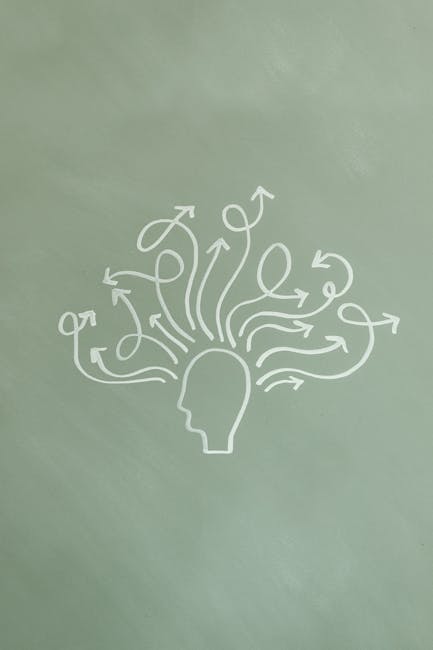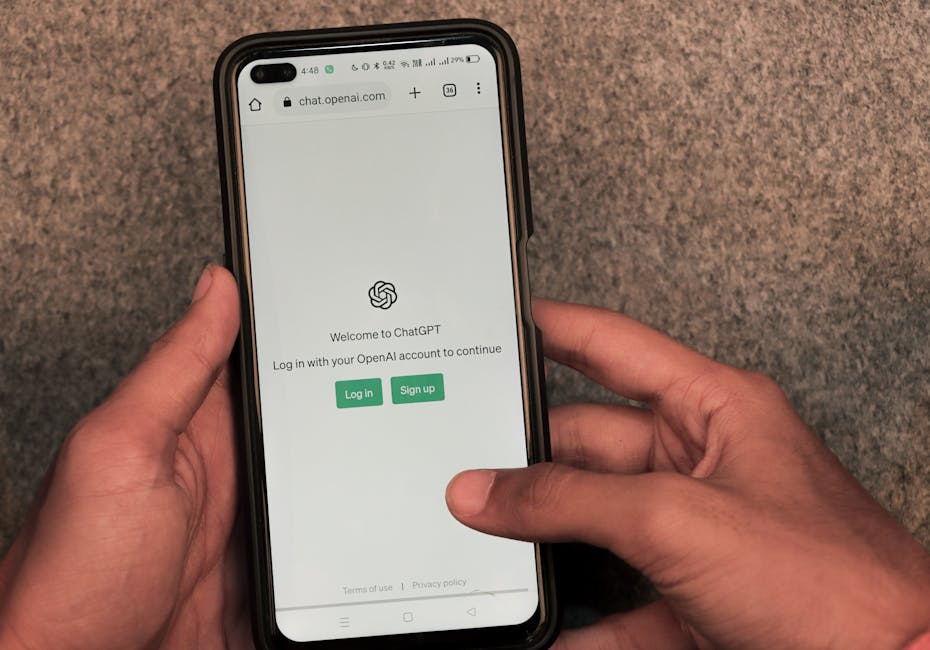Unlocking Mental Wellbeing AI: A Deep Dive into AI Mental Health Apps Revolutionizing Therapy in October 2024
The landscape of mental health support is undergoing a significant transformation, driven by the emergence of AI therapy apps. In October 2024, these AI mental health chatbots are proving to be a game-changer, offering accessible and personalized support to millions. The integration of artificial intelligence into mental health care platforms provides a novel approach to addressing various mental health conditions, from anxiety and depression to stress management and sleep management. Unlike traditional therapy, AI therapy apps offer real-time, virtual therapy sessions, often available 24/7, providing invaluable emotional support without the constraints of scheduling or location. This growing mental health market segment is powered by advanced natural language processing and machine learning, ensuring that users receive evidence-based therapeutic techniques tailored to their individual needs, ultimately fostering well-being improvement.
A vibrant infographic illustrating the exponential growth and adoption of AI mental health apps globally.
The Current Landscape of AI-Driven Mental Health Apps: Insights for October 2024
In October 2024, AI-driven mental health applications are not just a trend; they are a fundamental shift in how therapy seekers access support. Platforms like Wysa and Headspace exemplify the power of AI to deliver immediate, personalized emotional support. These AI therapy apps are designed to be intuitive, guiding users through reflective meditation experiences, CBT (Cognitive Behavioral Therapy) exercises, and mindfulness techniques. The accessibility and convenience offered by these digital platforms are paramount, particularly for individuals in remote areas or those facing stigma associated with traditional therapy. As the mental health market continues to expand, AI bots are playing an increasingly critical role in offering initial assessment and ongoing support, acting as a crucial first line of defense against mental health challenges. This evolution underscores the innovative impact of artificial intelligence in promoting mental health and wellbeing.

A user interacting with an AI mental health app on a smartphone, showcasing ease of access.
Deciphering the Core of AI in Mental Wellness and Judgement Free Support
The core of AI in mental wellness lies in its capacity to provide a safe, empathetic space where users can explore their thoughts and emotions without judgment. AI mental health chatbots, often powered by generative AI, leverage natural language processing to understand and respond to user input, simulating conversations with a human therapist. This capability enables AI platforms to offer helpful guidance and new perspectives in real-time. The anonymity and convenience of these apps make them particularly appealing, allowing individuals to address sensitive issues at their own pace. Such AI companion tools are designed to complement, not replace, human therapists, offering a layer of support that is always available. The ethical implications surrounding data privacy and the efficacy of these AI tools are continuously being addressed through rigorous app testing and collaboration with mental health professionals like licensed social workers and mental health editors, ensuring high standards of clinical experience.
An abstract visualization representing the empathetic and non-judgmental interaction between a user and an AI chatbot.
Key Concepts: Understanding AI Therapy and its Foundations
Understanding AI therapy involves recognizing its foundational components: natural language processing (NLP), machine learning (ML), and evidence-based therapeutic techniques such as CBT. NLP allows AI bots to interpret and generate human-like text, making conversations fluid and natural. ML algorithms enable the AI to learn from interactions, personalize interventions, and adapt to individual user needs, improving its effectiveness over time. This personalized support is crucial for addressing diverse mental health conditions. AI mental health chatbots are often built upon established psychological frameworks, ensuring that the guidance provided is clinically sound. For professionals seeking to optimize their understanding of such advanced systems, resources like enterprise ROI strategies for AI platforms can offer valuable insights into maximizing the return on investment in AI-driven solutions. The goal is to provide consistent, accessible support techniques that empower users to manage their mental health proactively.

An intricate diagram illustrating the interconnected components of AI therapy, including NLP, ML, and therapeutic frameworks.
Important Factors Driving the AI Mental Health Market Growth
Several important factors are driving the unprecedented growth of the AI mental health market. Increased awareness of mental health issues, coupled with a shortage of traditional mental health professionals, has created a significant demand for alternative solutions. The COVID-19 pandemic further accelerated the adoption of digital mental healthcare platforms, highlighting the need for accessible support from anywhere, at any time. Technological advancements in artificial intelligence have made AI therapy apps more sophisticated and effective, capable of delivering personalized interventions. Additionally, the affordability of AI mental wellness apps compared to traditional therapy makes them an attractive option for a broader demographic. This global accessibility to mental health care is a pivotal driver, breaking down barriers of cost, geography, and stigma. These factors collectively contribute to a robust and expanding market for AI-driven mental health and wellbeing solutions.

A dynamic graph showcasing the upward trend of the global AI mental health market growth.
Why AI Mental Health Apps Matter: Essential Mental Health Tools for Global Access of Mental Health
AI mental health apps are quickly becoming essential mental health tools, democratizing access to care globally. These platforms provide a scalable solution to the pervasive challenge of mental health conditions, offering support in various native languages and at convenient times. For individuals struggling with anxiety and depression, or simply seeking better stress management, AI-driven solutions offer a discreet and immediate avenue for support. They empower users to take an active role in their well-being improvement, providing tools for mood tracking, journaling, and guided mindfulness exercises. The rise of these digital therapy apps signifies a commitment to ensuring everyone has access to vital emotional support, regardless of their circumstances. This global access of mental health care represents a profound shift towards a more inclusive and responsive mental health ecosystem, fostering resilience across communities.

A world map overlaid with icons representing widespread access to digital mental health services.
Navigating the Current State of AI Therapy Apps and Therapy Support Innovations
Navigating the current state of AI therapy apps reveals a vibrant landscape of innovation. Developers are continuously refining AI platforms to offer more nuanced and effective support. Beyond basic CBT methods, some apps are incorporating elements of Internal Family Systems therapy and providing deep emotional insights. This continuous evolution is making AI mental health chatbots more capable of addressing complex emotional distress and providing more personalized interventions. The goal is to provide therapy-like support that feels genuinely responsive and helpful, bridging the gap between automated responses and human empathy. For businesses looking to enhance their digital outreach, understanding the nuances of how these platforms engage users is critical. Further insights into impactful digital strategies can be found by exploring cutting-edge digital marketing and advertising strategies, offering methods to reach and engage diverse audiences effectively. This innovative approach is pushing the boundaries of what is possible in digital mental healthcare.

A conceptual image illustrating the continuous innovation and development in AI therapy app features.
Important Factors Driving the AI Mental Health Market Growth
The AI boom has significantly impacted the development of emotional resilience tools, making them more sophisticated and widely available. Current trends show a move towards more advanced generative AI that can engage in open-ended conversations, offering a richer and more personalized experience. Apps are integrating real-time feedback loops, allowing the AI to learn from user interactions and refine its responses, enhancing the efficacy of emotional support. This has led to the development of AI companion tools that feel less like a bot and more like a virtual companion. Furthermore, there's a growing emphasis on incorporating preventative mental health strategies, such as proactive stress management and sleep management techniques. The evolution towards Agentic AI and Autonomous Intelligence in these applications promises even more intuitive and anticipatory support, reflecting a proactive approach to mental health.

A futuristic depiction of AI's seamless integration into daily life, fostering emotional resilience.
Revolutionizing Therapy: The Promise of AI Therapists and AI Therapy Effectiveness
AI therapists are revolutionizing therapy by offering a scalable, accessible, and often more affordable alternative to traditional methods, bolstering AI therapy effectiveness. The promise lies in their ability to provide consistent support, 24/7, tailored to individual needs. For instance, Wysa's AI chatbot is renowned for its ability to offer a safe, empathetic space, helping users gain clarity on thoughts and emotions with no judgment and helpful guidance. This 24/7 AI therapist capability means that emotional support is always just a tap away, providing real-time assistance during moments of crisis or stress. The integration of CBT and mindfulness exercises within these AI platforms empowers users to develop coping mechanisms and improve their mental health and wellbeing. This continuous availability marks a significant step forward in making mental health care more ubiquitous and responsive to urgent needs, redefining what therapy can be.
A split screen showing a person engaging with an AI therapist app and a clock indicating 24/7 availability.
Introducing the Best AI Mental Health Apps: Youper, Wysa, and Abby AI Features
When considering the best AI mental health apps, Youper, Wysa, and Abby AI stand out for their innovative features and effectiveness. Wysa's AI chatbot, for example, is recognized for its conversational-based technology that guides users through therapeutic exercises, offering anonymous support and fostering emotional resilience. Youper, on the other hand, utilizes AI to provide personalized mental health assessments and interventions, focusing on anxiety and stress management through mood tracking and reflective meditation experiences. Abby AI focuses on personalized support for women’s mental health, leveraging artificial intelligence to create a unique therapeutic journey. These apps demonstrate the diverse ways AI platforms are tailored to meet specific mental health needs. Such advancements provide effective digital mindfulness and wellness tools, making professional-grade mental health care more accessible than ever before, profoundly impacting the global mental health landscape.

A comparative chart highlighting key features and benefits of Youper, Wysa, and Abby AI apps.
Expert Insight: What Therapists Recommend for AI Mental Health Apps
While AI mental health apps are incredibly beneficial, many therapists recommend them as a supplementary tool rather than a complete replacement for human therapy. Licensed social workers and mental health editors often highlight the value of AI in providing immediate emotional support, managing acute stress, and practicing mindfulness techniques. They particularly appreciate apps like Wysa and Headspace for their evidence-based CBT exercises and guided meditations. However, experts emphasize the importance of data safety and confidentiality, advising users to choose reputable platforms with strong privacy policies. The consensus is that AI companion tools can be a powerful asset for initial assessment, mood tracking, and reinforcing therapeutic practices between sessions. For those evaluating the commercial side of such innovative services, understanding market valuation is crucial, and insights can be gained from resources like expert HVAC business brokerage services, which highlight the importance of thorough evaluation in specialized markets.

A professional therapist icon with speech bubbles containing recommendations for AI mental health apps.
Exploring the AI Mental Health Apps Ecosystem: From Wysa to Youper and Beyond for Optimal Mental Wellbeing AI
The AI mental health apps ecosystem is rapidly expanding, offering a spectrum of tools designed for optimal mental wellbeing AI. From well-known platforms like Wysa and Youper to emerging innovations, these apps are redefining how individuals approach their mental health. They serve as a constant source of emotional support, helping users navigate life’s challenges with greater ease and resilience. The continuous evolution in this space, driven by advancements in generative AI and machine learning, means that users can expect increasingly sophisticated and personalized interventions. This ecosystem is not just about technology; it’s about fostering a community of support and providing accessible tools for everyone seeking to improve their mental health and wellbeing. Exploring this diverse range of AI platforms allows individuals to find the best fit for their unique needs and preferences, promoting sustained well-being improvement.

A vibrant ecosystem diagram illustrating various AI mental health apps interconnected and supporting users.
First Major Topic: Mastering AI Mental Health Tools and AI Therapy Apps
Mastering AI mental health tools and AI therapy apps involves understanding their capabilities and integrating them effectively into one's daily routine. These digital platforms offer a wealth of features, from mood tracking and journaling tools to guided meditations and CBT exercises, all designed to enhance mental health and wellbeing. Platforms like Wysa offer a 24/7 AI therapist that provides a safe, empathetic space, helping users gain clarity on thoughts and emotions with no judgment. For individuals managing anxiety and stress management, these apps can be a consistent source of support and guidance. The key is to leverage their personalized support to build sustainable coping mechanisms and improve overall well-being. By actively engaging with these AI companions, users can unlock their full potential for emotional resilience and foster a proactive approach to mental health care.

A person diligently using an AI mental health app on their tablet for daily well-being management.
Understanding the Mechanics of AI-Driven Mental Health Apps and Judgement Free Engagement
Understanding the mechanics of AI-driven mental health apps involves delving into the sophisticated algorithms and ethical considerations that ensure judgment-free engagement. These apps utilize natural language processing (NLP) to interpret user input and machine learning (ML) to personalize responses, making each interaction feel unique and relevant. The AI companion is programmed to maintain a non-judgmental stance, fostering an environment where users feel comfortable expressing their deepest concerns. This is particularly crucial for individuals dealing with sensitive issues, as it encourages open communication and builds trust. The efficacy of these systems relies on their ability to learn and adapt, continuously improving the quality of emotional support provided. For individuals managing personal enterprises, like a small business, understanding the operational flow and support systems is equally important. Insights into such systems can be found by reviewing resources like efficient management systems for service businesses, which highlight structured approaches to operational excellence.
An abstract representation of AI algorithms processing emotional data with a focus on ethical, judgment-free responses.
Important Factors Driving the AI Mental Health Market Growth
Natural Language Processing (NLP) is a cornerstone of AI therapy apps, enabling them to understand, interpret, and generate human language. This technology allows AI mental health chatbots to engage in meaningful conversations, recognizing nuances in tone and sentiment. For example, when a user expresses feelings of anxiety and depression, NLP helps the AI to identify these emotional cues and respond with appropriate evidence-based therapeutic techniques like CBT methods. It’s what makes the interaction with a 24/7 AI therapist feel remarkably human-like, providing helpful guidance and new perspective. Without robust NLP, the personalized support offered by these AI platforms would be severely limited, hindering their ability to provide effective stress management and emotional support. This sophisticated understanding of language is fundamental to the successful operation and widespread adoption of online therapy and digital mental healthcare platforms.

An illustrative graphic depicting natural language processing in action, transforming text into actionable insights for AI therapy.
Important Factors for Choosing the Best AI Mental Health Apps
When selecting the best AI mental health apps, several important factors should guide therapy seekers. First, consider the app's adherence to evidence-based therapeutic techniques, such as CBT and mindfulness, ensuring the guidance provided is clinically sound. Secondly, assess the level of personalized support offered; truly effective AI companion tools adapt to individual needs and progress. Data safety and confidentiality are paramount, so review privacy policies carefully to ensure your information is secure. User reviews and recommendations from mental health professionals can also offer valuable insights into an app's efficacy and user experience. Finally, explore the range of features, including mood tracking, journaling tools, and access to a licensed social worker if needed. These elements collectively contribute to a robust and trustworthy AI mental health solution, crucial for sustained well-being improvement.
A checklist infographic outlining key factors to consider when choosing AI mental health apps.
Analytical Deep Dive: Evaluating AI Mental Health Apps and TherapyAI Effectiveness
An analytical deep dive into AI mental health apps reveals a complex interplay of technology and psychology, critically examining TherapyAI effectiveness. The most effective AI platforms utilize a combination of artificial intelligence, machine learning, and natural language processing to deliver personalized and adaptive support. Evaluation often involves assessing how well these apps integrate CBT methods, mindfulness exercises, and stress management techniques into their conversational interfaces. Furthermore, the ability of an AI companion to provide a safe, empathetic space, offering clarity on thoughts and emotions with no judgment, is a key metric. Studies often highlight apps like Wysa for their validated therapeutic content and Youper for its comprehensive initial assessment. The continuous feedback loop, where AI learns from user interactions, is vital for improving accuracy and relevance over time, thus enhancing overall AI therapy effectiveness.
A detailed analytical chart comparing the effectiveness metrics of leading AI mental health apps.
Critical Elements for Successful AI Therapy Implementation
Successful AI therapy implementation hinges on several critical elements. First, robust data privacy and security measures are non-negotiable, ensuring user trust and compliance with regulations. The AI companion must be designed with ethical considerations in mind, avoiding bias and promoting inclusivity. Secondly, seamless user experience and intuitive interfaces are crucial for engagement, especially for therapy seekers new to digital mental healthcare platforms. The integration of evidence-based therapeutic techniques, such as CBT and mindfulness, ensures clinical credibility. Furthermore, the ability to scale personalized support to a large user base without compromising quality is a defining factor. Finally, ongoing collaboration with mental health professionals, including licensed social workers and mental health editors with clinical experience, is essential for continuous improvement and validation of AI therapy effectiveness.
A blueprint illustration detailing the critical elements required for successful AI therapy implementation.
Best Practices for Utilizing AI Mental Health Chatbot Support
To maximize the benefits of AI mental health chatbot support, certain best practices are advisable. Engage actively and honestly with the AI companion, as its effectiveness is directly correlated with the quality of information it receives. Utilize features like mood tracking and journaling tools consistently to gain deeper insights into your emotional patterns. Integrate the AI therapy app into your daily routine, perhaps for morning mindfulness exercises or evening stress management. Remember that while these AI platforms offer personalized support and helpful guidance, they are not a substitute for professional human therapy for severe mental health conditions or suicidal thoughts. For those looking to enjoy recreational activities that help manage stress, finding local facilities can be a boon. Consider resources such as local private pool rental options for a refreshing and calming escape.
A user demonstrating best practices for engaging with an AI mental health chatbot for optimal benefit.
Second Major Topic: Implementing and Enhancing Mental Health AI Apps for Therapy Support
Implementing and enhancing mental health AI apps for therapy support requires a strategic approach that prioritizes user engagement and continuous improvement. The goal is to create a seamless experience where the AI companion becomes an invaluable part of an individual's mental health and wellbeing journey. This involves not only selecting the right app but also understanding how to leverage its features for maximum benefit. Effective implementation often includes personalized onboarding processes, clear guidance on utilizing various tools like mood tracking and CBT exercises, and readily available support. The enhancement aspect focuses on regular updates, incorporating user feedback, and integrating new advancements in generative AI and machine learning to offer increasingly sophisticated and responsive emotional support, thereby solidifying the app's role as a game-changer in online therapy.
A strategic roadmap illustrating the implementation and enhancement phases of mental health AI apps.
Your Step-by-Step Guide to Deploying AI Therapy and Productive Activities
Deploying AI therapy and integrating productive activities into your life can significantly enhance your mental health and wellbeing. Begin by identifying your specific mental health goals—whether it’s stress management, anxiety and depression relief, or improved sleep management. Research AI therapy apps like Wysa, Youper, or Headspace to find one that aligns with your needs and offers evidence-based therapeutic techniques such as CBT and mindfulness. Once chosen, commit to a consistent routine, utilizing features like journaling tools and mood tracking. Remember, an AI companion is a tool; its effectiveness is amplified when combined with active engagement in productive activities, creating a holistic approach to well-being improvement. This structured deployment ensures that the AI platform serves as a powerful catalyst for positive mental change.
A step-by-step infographic guiding users through the deployment and integration of AI therapy apps.
Step-by-Step Process for Integrating AI Mental Health Apps into Your Routine
Integrating AI mental health apps into your daily routine involves a clear, actionable process. First, perform an initial assessment to determine your mental health needs and preferred therapeutic approaches. Next, download a reputable AI therapy app, such as Wysa or Headspace, known for its evidence-based content and user-friendly interface. Begin by exploring its core features like guided meditations, CBT exercises, and mood tracking. Set aside dedicated time each day for interaction, treating it like a scheduled self-care activity. Actively engage with the AI companion, providing honest responses to receive personalized support and helpful guidance. Regularly review your progress and adjust your usage based on the insights gained, ensuring that the AI platform continuously contributes to your mental health and wellbeing, leading to sustainable emotional resilience.

A visual flowchart outlining the seamless integration of AI mental health apps into a daily schedule.
Common Challenges in Adopting AI Therapists and App Support
Despite their numerous benefits, adopting AI therapists and app support can present common challenges. One significant hurdle is establishing trust in an AI companion, especially for those accustomed to human interaction. Concerns about data safety and confidentiality are also prevalent, requiring apps to have transparent privacy policies and robust security measures. Users may also find the initial learning curve challenging, navigating new interfaces and understanding how to best utilize features like mood-tracking systems or conversational-based technology for anxiety and stress management. Additionally, the impersonal nature of AI bots can sometimes be a barrier for individuals seeking deep emotional connection. Overcoming these challenges requires clear communication from developers, extensive app testing, and educational resources to help therapy seekers understand the capabilities and limitations of AI mental health chatbots, ensuring a smoother transition to online therapy.

An illustration depicting common challenges faced by users when adopting AI mental health apps, such as privacy concerns.
Advanced Techniques for Maximizing AI-Driven Mental Wellbeing AI Outcomes
To maximize AI-driven mental wellbeing AI outcomes, advanced techniques involve a deeper engagement with the AI platforms. This includes customizing the AI companion's responses where possible, focusing on specific therapeutic modules like advanced CBT methods, and integrating insights from mood tracking into broader self-reflection. Utilize the journaling tools to articulate complex emotions, allowing the AI to offer more nuanced personalized support and helpful guidance. For those in high-stakes environments, such as managing significant business decisions, mental resilience is key. Consider how a comprehensive strategy might tie into other aspects of life; for example, if one is looking to engage in significant business transactions, insights from platforms like enterprise ROI strategies for AI platforms can provide a framework for evaluating value beyond just mental health. The aim is to leverage the AI’s generative AI capabilities to proactively navigate life’s challenges and enhance emotional resilience.

A person demonstrating advanced usage of an AI mental health app, utilizing customized features for deeper engagement.
Expert Tips for Personalized Mental Wellness with AI Apps
Expert tips for achieving personalized mental wellness with AI apps emphasize a proactive and tailored approach. Therapists often advise users to select apps that offer customizable programs, allowing them to focus on specific areas like anxiety and depression, or stress management. Regularly engage with the AI companion, treating it as a digital therapist that offers helpful guidance and a new perspective. Utilize features like reflective meditation experiences and CBT exercises to build coping skills. Importantly, combine AI therapy with other forms of self-care, such as physical activity, adequate sleep management, and social connections. This holistic approach ensures comprehensive mental health and wellbeing. For continuous improvement, regularly review the insights provided by the app, such as mood tracking data, to understand patterns and adapt your wellness strategies accordingly, leading to enhanced emotional support.
An expert's hand pointing to various customizable features within an AI mental health app, advising personalized wellness strategies.
Navigating the Current State of AI Therapy Apps and Therapy Support Innovations
Optimization strategies for enhancing emotional resilience tools within AI mental health apps focus on continuous refinement and user-centric design. This involves regular app testing to identify areas for improvement in AI therapy effectiveness, particularly concerning the delivery of personalized support and the accuracy of generative AI responses. Developers should prioritize incorporating feedback from licensed social workers and mental health editors with clinical experience to ensure the therapeutic content is robust and evidence-based. Enhancing features like mood tracking, journaling tools, and panic attack support can significantly improve a user's ability to navigate life’s challenges. Furthermore, optimizing the AI companion to offer a truly safe, empathetic space, providing clarity on thoughts and emotions with no judgment, is paramount. This iterative process ensures that AI platforms remain at the forefront of mental health innovation, driving well-being improvement.
A detailed flowchart illustrating optimization strategies for improving emotional resilience tools in AI apps.
Third Major Topic: Real-World Impact and Future Directions of AI Mental Health Apps
The real-world impact of AI mental health apps is profound, offering scalable solutions to global mental health challenges and shaping future directions. These AI therapy apps are proving to be a game-changer for individuals seeking accessible, personalized support for conditions like anxiety and depression, and for general stress management and sleep management. By providing a 24/7 AI therapist, platforms like Wysa empower users to navigate life’s challenges with greater emotional resilience. The future promises even more sophisticated AI platforms, capable of deeper emotional insights and proactive interventions, further blurring the lines between digital and traditional therapy. This evolution is set to expand global access of mental health care, making mental health and wellbeing support a universal right rather than a privilege. The ongoing developments point towards a future where AI mental health chatbots are integral to daily well-being improvement.

A global map highlighting areas impacted by AI mental health app adoption and future expansion zones.
Illuminating Case Studies: Successes and Lessons from AI Therapy in October 2024
Illuminating case studies from October 2024 reveal compelling successes and invaluable lessons from AI therapy. Wysa, for instance, has demonstrated significant efficacy in reducing symptoms of anxiety and depression, with numerous users reporting improved emotional support and coping mechanisms through its AI companion. Similarly, Youper has shown strong results in personalized mental health assessments and interventions, leveraging AI to tailor support techniques. These successes underscore the potential of AI mental health apps to deliver tangible well-being improvement. However, lessons learned emphasize the critical importance of data safety and confidentiality. Protecting user information remains a paramount concern, driving continuous efforts in ethical AI development and transparent privacy policies. The careful balance between innovation and user protection is a key takeaway from these real-world applications of online therapy.

A collage of anonymized success stories and testimonials from users of Wysa and Youper.
Success Stories: How Wysa and Youper are Revolutionizing Therapy
Wysa and Youper are at the forefront of revolutionizing therapy through their innovative AI therapy apps. Wysa's AI chatbot has garnered praise for its empathetic and non-judgmental approach, providing a safe space for users to explore their thoughts and emotions, often leading to significant reductions in anxiety and stress management symptoms. Its 24/7 AI therapist capability ensures immediate emotional support, acting as a crucial first line of defense. Youper, on the other hand, excels in personalized support, using generative AI to offer tailored interventions based on mood tracking and initial assessment. Both apps incorporate evidence-based therapeutic techniques like CBT and mindfulness, empowering users with actionable strategies for mental health and wellbeing. These success stories highlight the transformative power of AI platforms in making mental health care more accessible and effective for a global audience, driving well-being improvement.
A split image showcasing the unique interface and impactful features of Wysa and Youper apps.
Navigating the Current State of AI Therapy Apps and Therapy Support Innovations
Crucial lessons learned in the AI mental health market underscore the paramount importance of data safety and confidentiality and security. As AI therapy apps handle highly sensitive personal information, robust encryption, secure servers, and strict privacy policies are non-negotiable. Instances of data breaches or misuse can severely erode user trust and undermine the credibility of AI platforms. Developers are increasingly implementing advanced security protocols and transparent Cookie Settings to assure users of their data protection. Ethical considerations also dictate that users should have clear control over their data, including the right to access, modify, and delete it. Collaborating with regulatory bodies and mental health professionals, including licensed social workers, is essential to establish industry best practices for safeguarding sensitive information in the digital mental healthcare platform, ensuring responsible and secure emotional support.
A padlock icon superimposed on a network of data points, symbolizing robust data safety and security in AI mental health.
Why AI Mental Health Apps Matter: Essential Mental Health Tools for Global Access of Mental Health
Peering ahead, the AI mental health market is poised for exciting emerging developments and groundbreaking predictions. We anticipate AI therapy apps to become even more sophisticated, with generative AI capable of conducting multi-session therapy-like support and offering deeper emotional insights. The integration of biometric data and wearable technology will allow AI platforms to provide highly personalized support, identifying stress triggers and suggesting real-time interventions for anxiety and depression. Furthermore, there will be a strong emphasis on proactive mental health, with AI companion tools offering predictive analytics for mood tracking and early intervention strategies for stress management and sleep management. The market will see an expansion of specialized AI bots catering to niche mental health conditions, ensuring comprehensive global access of mental health. This continued innovation will solidify AI therapy apps as a fundamental pillar of modern mental health and wellbeing.

A futuristic vision of AI mental health care, featuring holographic interfaces and integrated wearable tech.
Navigating the Current State of AI Therapy Apps and Therapy Support Innovations
Emerging developments in AI therapists and TherapyAI features are set to redefine the boundaries of mental health care. We can expect significant advancements in Agentic AI and Autonomous Intelligence, allowing AI platforms to anticipate user needs more effectively and offer more proactive interventions. Features like real-time emotional detection through voice analysis and advanced natural language processing will enable the AI companion to understand context and sentiment with unprecedented accuracy. There will be a greater focus on integrating AI therapy apps with virtual reality (VR) and augmented reality (AR) for immersive therapeutic experiences, such as guided mindfulness sessions in virtual serene environments. These innovations will enhance personalized support, offering new avenues for stress management, anxiety and depression relief, and overall well-being improvement. Such sophisticated tools represent a paradigm shift in digital mindfulness and wellness. [IMAGE_PLACEER: A conceptual image showing advanced AI therapists interacting with users through VR/AR interfaces for immersive therapy.]
Predictions for the Evolution of AI Mental Health Apps and Global Access of Mental Health
Predictions for the evolution of AI mental health apps point towards a future characterized by unprecedented global access of mental health care. AI platforms will become indispensable, particularly in regions with limited access to traditional mental health professionals, providing a 24/7 AI therapist capable of supporting diverse populations in their native language. We foresee AI mental health chatbots integrating seamlessly with broader healthcare ecosystems, facilitating referrals to human therapists when necessary, and offering continuous mood tracking and emotional support. The emphasis will shift towards preventative care, with AI companion tools empowering users to proactively manage their mental health and wellbeing, fostering emotional resilience before crises emerge. This pervasive integration of artificial intelligence will democratize access to mental health support, making high-quality, personalized care a reality for everyone, everywhere.

An illustrative map showing universal access to AI mental health apps across different continents.
Navigating the Future of Mental Wellbeing AI: Empowering Lives with AI Mental Health Apps and Judgement Free Support
Navigating the future of mental wellbeing AI involves recognizing the transformative power of AI mental health apps and their capacity to provide judgment-free support. As technology advances, these AI platforms will become even more integral to promoting global mental health and wellbeing, offering personalized support that adapts to individual needs. The commitment to ethical AI development, data safety and confidentiality, and continuous app testing will ensure these tools remain trustworthy and effective. By embracing the innovations in AI therapy, we can empower countless lives, offering accessible and empathetic emotional support to those grappling with anxiety and depression, stress management, and other mental health conditions. The future is bright for mental wellbeing AI, promising a more inclusive and responsive mental health landscape where every therapy seeker can find the help they need, anytime, anywhere.

A visually inspiring image of diverse individuals empowered by AI mental health apps, smiling and thriving.
Why AI Mental Health Apps Matter: Essential Mental Health Tools for Global Access of Mental Health
Key learnings from the rapid evolution of AI mental health apps highlight their transformative power in modern therapy. These AI platforms offer unparalleled accessibility, convenience, and personalized support, making mental health care more attainable for a global audience. The integration of evidence-based therapeutic techniques like CBT and mindfulness within AI companion tools has proven effective in managing conditions such as anxiety and depression, and for improving overall mental health and wellbeing. From the 24/7 AI therapist capabilities of Wysa to Youper’s advanced mood tracking, these apps are truly a game-changer. The ongoing advancements in generative AI promise even more sophisticated and empathetic emotional support, solidifying AI therapy’s role as an indispensable component of future mental healthcare systems, driving significant well-being improvement.
A dynamic infographic summarizing the transformative impact and key benefits of AI mental health apps.
Navigating the Current State of AI Therapy Apps and Therapy Support Innovations
Summarizing the core benefits of AI-driven mental wellness tools reveals their crucial role in modern mental health. They offer unparalleled accessibility, providing a 24/7 AI therapist that delivers real-time emotional support. The convenience of accessing therapy-like support from anywhere, at any time, breaks down geographical and logistical barriers. Personalized support, driven by advanced natural language processing and machine learning, ensures that interventions are tailored to individual needs, addressing specific concerns like anxiety and stress management. Moreover, the judgment-free space offered by AI mental health chatbots encourages open communication and fosters emotional resilience. These benefits are increasingly recognized and recommended by therapists as supplementary tools for ongoing mental health and wellbeing, proving the efficacy of digital mindfulness and wellness.

A bullet-point infographic highlighting the core benefits of AI-driven mental wellness tools, recommended by therapists.
Current Trends: The AI Boom and its Impact on Emotional Resilience Tools
The key benefits of AI mental health apps revolve around their exceptional accessibility, coupled with a strong emphasis on confidentiality and security. These apps provide a lifeline for therapy seekers who might face barriers to traditional therapy, offering 24/7 emotional support from anywhere in the world. This global access of mental health care ensures that individuals struggling with anxiety and depression, or needing stress management, can find immediate help. Crucially, reputable AI platforms prioritize data safety, employing robust encryption and transparent privacy policies to protect sensitive user information. This commitment to confidentiality and security fosters trust, allowing users to engage with their AI companion without fear of judgment or exposure, thereby facilitating open and honest engagement for optimal mental health and wellbeing.

A visual representation contrasting accessibility with security, highlighting their importance in AI mental health apps.
Recap: What Makes AI Therapy Effectiveness Stand Out
Recapping what makes AI therapy effectiveness stand out reveals several differentiating factors. The ability of AI mental health chatbots to offer personalized support tailored to individual needs, driven by advanced generative AI and machine learning, is paramount. Their continuous availability as a 24/7 AI therapist provides real-time emotional support, a critical advantage for managing sudden emotional distress or a panic attack. Furthermore, the integration of evidence-based therapeutic techniques such as CBT methods and mindfulness, delivered in a non-judgmental format, significantly enhances well-being improvement. The scalability of these AI platforms means that high-quality mental health and wellbeing resources can reach a wider audience, breaking down traditional barriers to care and democratizing access to mental health support for countless therapy seekers.
A concise summary infographic illustrating the unique features contributing to AI therapy's effectiveness.
Forward Momentum: Your Next Steps in Embracing AI Mental Health Apps for Therapy Support
Embracing AI mental health apps for therapy support marks a forward momentum in your journey towards improved mental health and wellbeing. Your next steps involve actively exploring and integrating these powerful digital tools into your life. Start by researching top-rated AI therapy apps like Wysa, Headspace, or Youper, focusing on features that align with your personal goals for stress management or anxiety and depression relief. Engage consistently with the AI companion, utilizing its journaling tools, mood tracking, and guided meditations to build emotional resilience. Remember, these AI platforms are designed to complement human care, not replace it, providing accessible, personalized support when you need it most. By taking these proactive steps, you can harness the transformative power of AI to foster a healthier, more balanced mental state, leading to sustained well-being improvement.

A person stepping forward confidently, symbolizing proactive engagement with AI mental health apps for well-being.
Final Thoughts: The Unstoppable Rise of AI Therapists and Mental Health Tools
Our final thoughts reinforce the unstoppable rise of AI therapists and mental health tools as indispensable components of modern healthcare. The continuous innovation in generative AI, natural language processing, and machine learning ensures that AI mental health apps will only become more sophisticated, offering deeper emotional insights and more personalized support. These AI platforms are breaking down barriers of accessibility, cost, and stigma, providing a 24/7 AI therapist to millions worldwide. While ethical considerations, data safety and confidentiality, and the need for human oversight remain crucial, the transformative potential of AI therapy to enhance mental health and wellbeing is undeniable. The future will see these AI companion tools seamlessly integrated into daily life, empowering individuals to proactively manage their emotional health and build lasting emotional resilience, making well-being improvement a universal reality.

A powerful image symbolizing the unstoppable upward trajectory and widespread adoption of AI mental health tools.
Call to Action: Discovering the Best AI Mental Health Apps for You in October 2024
It's time for a call to action: discover the best AI mental health apps for you in October 2024. Take the initiative to explore platforms like Wysa, Youper, and Headspace, which offer a range of evidence-based therapeutic techniques including CBT and mindfulness. Consider your unique needs for emotional support, whether it's for anxiety and depression, stress management, or sleep management. Read reviews, compare features, and prioritize apps with strong data safety and confidentiality measures. Engaging with an AI companion can provide accessible, personalized support, helping you gain clarity on thoughts and emotions with no judgment. Empower yourself by integrating these AI therapy apps into your routine, and take a proactive step towards enhancing your mental health and wellbeing, embarking on a journey towards significant well-being improvement today.
A hand reaching out to select an AI mental health app from a selection on a smartphone screen.
Extending Your Journey: Additional Resources for AI in Mental Health and Privacy Considerations
Extending your journey into AI in mental health involves exploring additional resources, particularly regarding privacy considerations. While AI mental health apps offer immense benefits, understanding the ethical implications of data safety and confidentiality is paramount. Seek out whitepapers, academic studies, and expert insights from organizations dedicated to digital ethics and mental health. Reputable sources will provide detailed information on how AI platforms protect user data, implement secure protocols, and comply with privacy regulations. For businesses operating within specialized sectors that require stringent data handling and client trust, such as brokering, understanding these principles is critical. An example of a resource that underscores the importance of client relations and professional expertise is found by exploring expert HVAC business brokerage services, which emphasize transparency and secure transactions. This knowledge empowers you to make informed choices, ensuring your mental health and wellbeing journey is supported by trustworthy and secure AI companion tools.

A stack of books and digital tablets, symbolizing extensive resources and research on AI mental health and privacy.
Next Steps: Exploring Woebot Health, Talkspace, and BetterHelp Alternatives
For those looking to expand their options beyond the most recognized names, exploring Woebot Health, Talkspace, and BetterHelp alternatives can be a valuable next step. Woebot Health offers a unique AI companion experience focused on CBT methods, providing emotional support through conversational AI. While Talkspace and BetterHelp primarily connect users with licensed human therapists for online therapy, they also represent the broader digital mental healthcare platform market. Alternatives might include apps with specialized focuses, such as those catering to specific mental health conditions or offering unique blends of mindfulness and stress management techniques. When evaluating these options, consider the balance between AI therapy effectiveness and the availability of human oversight or referral pathways. This thorough exploration ensures therapy seekers find the best fit for their needs, optimizing their journey towards mental health and wellbeing, and enhancing personalized support.

A comparative table showing features and alternatives to Woebot Health, Talkspace, and BetterHelp.
Introducing the Best AI Mental Health Apps: Youper, Wysa, and Abby AI Features
To dive deeper into the world of AI therapy apps and critical data safety, consulting essential guides and further reading is highly recommended. Look for comprehensive reports from mental health organizations, technology ethics committees, and academic journals that offer insights into the development, efficacy, and ethical considerations of AI mental health chatbots. These resources often provide detailed analyses of AI platforms like Wysa and Headspace, discussing their generative AI capabilities, adherence to evidence-based therapeutic techniques like CBT, and their commitment to data safety and confidentiality. Understanding the nuances of how these AI companion tools protect user data is vital for therapy seekers. Such in-depth knowledge empowers you to make educated decisions about your mental health and wellbeing, ensuring you choose reputable and secure digital mindfulness and wellness tools, ultimately promoting trust and well-being improvement.

An open book and a laptop displaying research articles on AI therapy and data privacy, inviting deeper exploration.
Expert Insight: What Therapists Recommend for AI Mental Health Apps
For additional resources on AI mental health apps, seek out expert insight and user feedback from diverse platforms. Online forums, specialized review websites, and professional mental health blogs often provide invaluable perspectives from licensed social workers, mental health editors with clinical experience, and real users. These resources can offer practical advice on navigating specific apps like Wysa and Youper, managing features such as mood tracking, and troubleshooting common issues. Expert insights often focus on the therapeutic effectiveness of AI companion tools, while user feedback provides anecdotal evidence of personalized support and emotional support received. Combining both perspectives offers a well-rounded understanding of the current landscape of AI therapy apps, helping therapy seekers make informed decisions about their mental health and wellbeing journey and enhancing their emotional resilience.
A network of interconnected icons representing expert opinions, user reviews, and online communities for AI mental health apps.

















